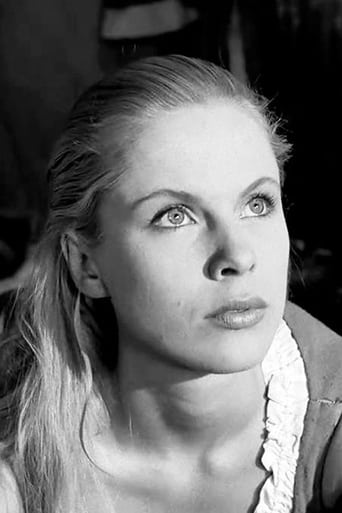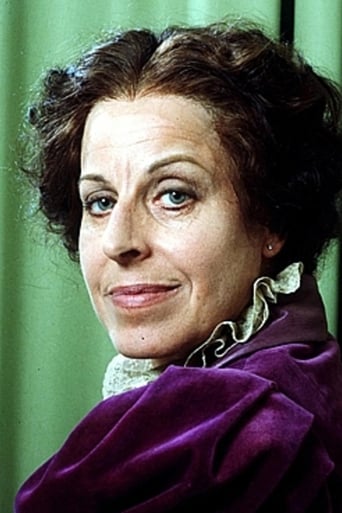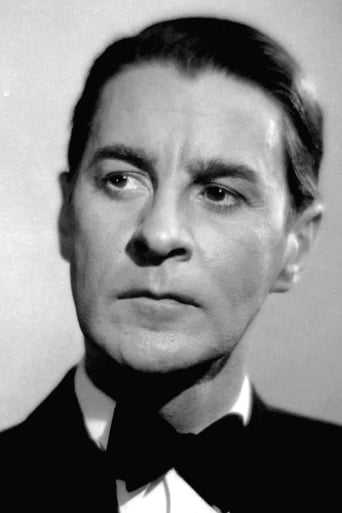grantss
A nurse at a psychiatric hospital, Alma, is given a new patient. Elisabet Vogler is a famous actress but has suddenly become apathetic, lethargic, mute and prone to fits of laughter at arbitrary, innocuous things. Alma does her best to engage Elisabet and get her to talk but the more Alma opens up to Elisabet, the more she empathises with her and becomes like her.Written and directed by famed Swedish director Ingmar Bergman, Persona is a superb, mind-bending study on identity and personality. Well, to me it is, mostly. Every time I thought I had the movie figured out, it would take a different tack. Reading what movie critics and psychologists think it is about, there isn't a single, unifying interpretation. So, if you say you know exactly what it is about - you're either lying or weren't concentrating. Basically, every person will have their own interpretation, dependant largely on their own background and perceptions. Isn't that the definition of art?And it certainly feels like art. Bergman's cinematography is excellent, the soundtrack adds to the intensity and he uses symbolism extensively, and jarringly (maybe a tad overused - I didn't find it all necessary). Liv Ullman's minimalist performance - she utters only two words during the course of the movie - and the psychological aspects, especially, add to the sense of this being something more than just a movie. Quite profound, even without knowing what the profundities are (!).I found it difficult to give this a 10, due to not understanding it fully (and believe me, I tried!) and feeling like I could have done with a more complete conclusion. However, as mentioned previously, maybe confusion / uncertain interpretation was Bergman's aim.
quinimdb
During the opening to this film, I had no idea what kind of movie I was watching. It shows film unrolling in a projector, gore, a strange silent film for a few seconds, and finally an old woman, cut in with pictures of a young boy, laying down in seemingly the same room. We see him wave his hand in front of what seems to be a large screen. We see our main characters appear. The credits start. I think this montage is to show us that we are watching a film, and the potential for what it can be at that moment is endless, considering its up to the creator to decide. This fits in with what we learn about Elisabet Vogler, an actress who suddenly, during an audition, got silent, and had a "sudden urge to laugh", and she has not said a word since. We learn she does have a husband and a life, and she even clearly cares for him, so this sudden change is perplexing to many. But it is this sudden change that shows that the individual is completely in control of their persona, and can change it at any minute. In fact, we all do it, as demonstrated by the nurse of Elisabet, Alma. Almost daily we change our outward personality depending on who we are with and when and where. The film suggests we are almost never exactly who we are on the inside. But the most thought provoking question the film presents is this: can we change who we are on the inside?The answer is yes throughout the film. Alma, at one point in the film, has a long monologue about a boy she slept with on a beach, how it was the best sex ever (yet she still feels guilty), how she got pregnant from the kid (but had sex with her husband the same night), and how her husband and her both got an abortion, but were happy they did. She mentions that she felt like a different person when it was happening. Throughout the film it seems that the two characters are merging into one, and my theory is that they are both the same person. When Alma is delivering the mail for Elisabet, she realizes her mail isn't sealed, and checks it. It involves Almas personal story, and it says that Elisabet is studying Alma. Alma feels offended and wants to get her to finally stop and talk. There is a long scene involving Elisabet walking around and finally stepping on a shard of glass Alma accidentally shattered, this seems to be Alma attempting to get Elisabet to talk, or react in any way, but all she hears is "ow!". Suddenly, Elisabet's husband finds her and Alma, but Alma is talking to him. At first she says, "I am not your wife". But he goes on about how "you love somebody, or say you do... it gives you security, a chance to endure, doesn't it?" which calls back to Alma earlier in the film when she reads her letter to Elisabet that was from Mr. Vogler, and both times he mentions that they both treat each other as "anxious children", and what matters is their intentions. This also calls back to when Alma reads "all our faith and doubt is evidence of our loneliness". Elisabet stands in the room as they have sex, but I believe she is only metaphorically there, in that she is a part of Alma and vice versa. The next scene involves Alma talking to Elisabet about her being told she cannot be a mother, then feeling that she needs to prove to herself and others that she can be a good mother then becoming terrified when she gets pregnant then wanting an abortion but having it fail multiple times then hating the child, but the child loved her unconditionally so it was hard. Then, this same scene plays again, only this time we are watching Alma and not Elisabet. This is another nod to the director being able to control the film entirely, but also, at the end of this one, Elisabets face is superimposed over half of Almas. So, if Alma and Elisabet were the same person, why would they have two different stories of getting pregnant and having a successful abortion and one failed abortion? I believe the failed abortion is true, but Elisabet is Almas suppressed true inner feeling of being an "actor" in everyday life. She sometimes plays different roles, during the pregnancy, the role of the happy expectant mother. Of course these almost never align with her inner self, as stated before. But ultimately it shows that we all have multiple "people" to us, even on the inside. And sometimes we can even convince ourselves that we are a different type of person for our own sake. I think Elisabet does this when she invents Alma, who had a successful abortion. Of course we never go as far as literally convincing ourselves that something different happened to us in the past, but it's a metaphor for how we choose different personalities even internally. Life may seep back through and prevent us from doing so, but we go back to hide ourselves from the horrors of the world.This is a very complex movie, especially for taking up only a short 85 minutes of my day, but I can promise it will inhabit your mind for much longer than that. It cuts from past to present at random, blurs the lines between reality and fantasy, and sometimes deviates completely from the main story to show us that we're watching a film with strange montages. It's about life, the human race, our psychology, film itself, and sometimes nothing at all. It's the most perplexing film I've seen since "Last Year At Marienbad" and thats intentionally perplexing. I mean all of this in the best way. It is one of a kind.







